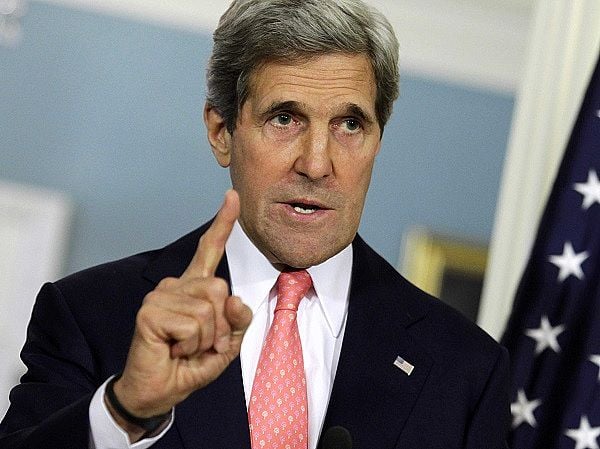
On Thursday, Palestinian President Mahmoud Abbas announced that he would be willing to continue the current peace talks past the April 29 deadline on the condition that extended talks include the possibility of establishing a Jewish state with East Jerusalem as its future capital.
A senior member of the Palestinian Liberation Organization, however, denied the reports that Abbas agreed to extend talks with Israel. Wasel Abu-Youssef was quoted by Maariv saying that the Palestinian leadership had not yet met to deliberate on the matter and that there were conditions posed to the Israelis on which an extension of talks depended.
An unnamed Israeli political source told Israel Radio that Jerusalem would release the fourth wave of Palestinian prisoners it refused to set free last week if the Palestinian Authority “freezes the situation” and commits to halt its drive for recognition by international organizations.
The first sign of breakthrough is encouraging, though both leaders face extreme pressure internally that weighs on their ability to make such drastic gestures for peace. The blame for the impasse that essentially has stopped the process caused a bit of tension between the United States and Israel. On Tuesday in front of a Senate hearing committee, U.S. Secretary of State John Kerry said that Israel was responsible for the latest crisis with the Palestinians. Kerry met with Israeli Foreign Minister Avigdor Lieberman Wednesday in Washington where the two cleared the air and reaffirmed the strong relationship that exists between the two countries.
Instead of deciding which side is holding the process back, it is more important to focus on how to move the process forward. The Washington Institute For Near East Policy held a Policy Forum on Friday, April 4 titled U.S. Policy and the Israeli-Palestinian Impasse that explained the current situation and environment surrounding the talks. Ambassador Dennis Ross, the William Davidson Distinguished Fellow and counselor at The Washington Institute, provided four possible options that the U.S. should consider for future involvement. In brief, he recommends the following:
Option One: Salvage the Package
Washington should first see whether the two sides could agree to the current terms of continuing the talks. For that to happen, the Palestinians would suspend their effort to accede to the fifteen conventions, while Israel would move ahead with releasing prisoners.
Option Two: Invite the Parties to Talk in Washington
If option one fails, Kerry could send a letter laying out the principles that serve as terms of reference and inviting the two leaders to send teams to Washington to negotiate on their basis.
Option Three: Present a U.S. “Best Judgment” for How to Resolve the Conflict
Kerry could also declare that after months of hard work, he will present his “best judgment” on what it takes to resolve the core issues in principle.
Option Four: Coordinated Unilateralism to Restore Faith in Two States
Washington could also work with each side separately, not as part of an ongoing bilateral negotiation and could create a specific agenda of steps for each side to prove its commitment to the other.
Whatever option the U.S. decides to move forward with, it can not be emphasized enough that Israeli Prime Minister Benjamin Netanyahu and Abbas have their own red lines for what they can and cannot agree to. Whether or not the two leaders can achieve an agreement with or without U.S. involvement depends on a dramatic shift in the needs and desires among the Israeli and Palestinian populations.